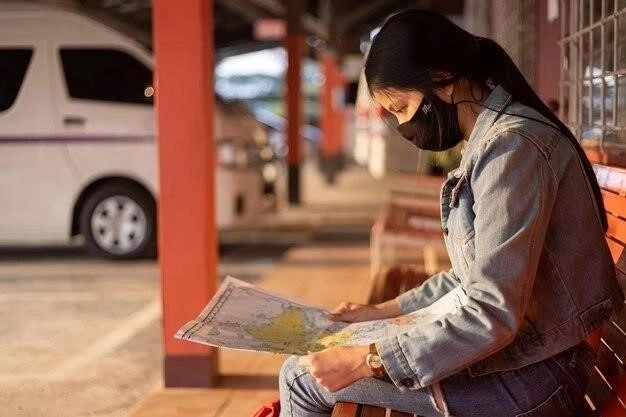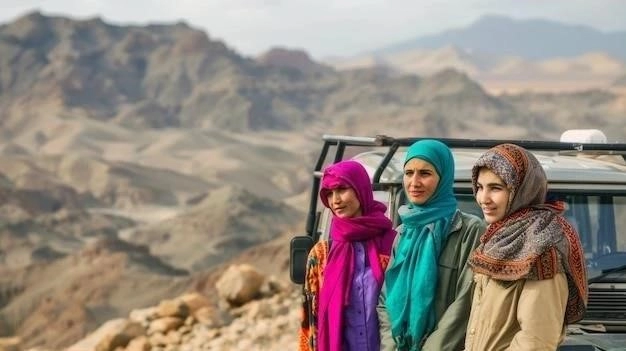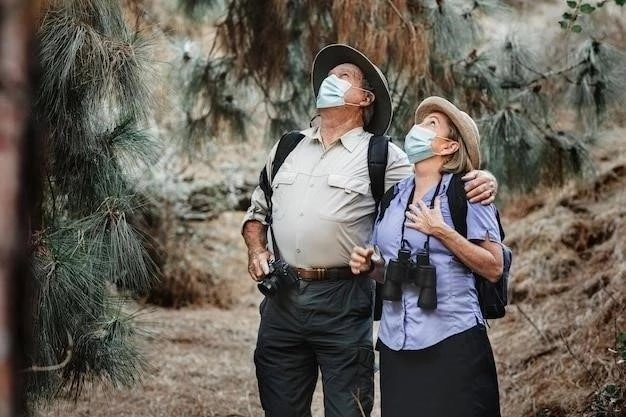Afghanistan Travel Guide 2024
Embark on a journey to Afghanistan, a land steeped in history and culture. This comprehensive guide offers essential insights for travelers in 2024, covering safety considerations, cultural etiquette, transportation, and more. Discover the raw beauty and complexities of Afghanistan while navigating its unique challenges responsibly.
Safety and Security
Traveling in Afghanistan presents significant and complex security challenges. The security environment remains volatile and unpredictable, with a high risk of terrorism, armed conflict, kidnapping, and crime. It is imperative to exercise extreme caution and prioritize personal safety at all times. Thorough research, meticulous planning, and a comprehensive understanding of the risks are paramount before considering travel to Afghanistan.
General Safety Considerations

Given the current situation in Afghanistan, maintaining a low profile and exercising heightened vigilance are crucial. Avoid drawing unnecessary attention to yourself and refrain from displaying signs of affluence. Prioritize your security by staying informed about potential risks and regularly reviewing travel advisories from your home country’s government. Establishing a reliable communication plan with family or contacts and sharing your itinerary with them is highly recommended. Furthermore, obtaining comprehensive travel insurance that includes medical evacuation coverage is essential.
Terrorism and Armed Conflict
Afghanistan faces a high threat of terrorism and armed conflict, with various groups operating throughout the country. Attacks can occur with little to no warning, targeting both civilian and government facilities, including places frequented by foreigners. It is crucial to remain aware of your surroundings, avoid large gatherings and demonstrations, and exercise heightened caution in public spaces. Stay informed about the latest security developments and heed any warnings or advisories issued by local authorities or your embassy.
Kidnapping and Crime
The risk of kidnapping in Afghanistan remains a serious concern, particularly for foreigners. Criminal gangs and insurgent groups operate with a high degree of impunity, and kidnappings can occur for various motives, including ransom or political leverage. It is crucial to maintain a low profile, vary your routines, and avoid traveling alone, especially in remote areas. Be cautious when interacting with strangers and refrain from disclosing personal information or travel plans to unknown individuals. Seek advice from trusted local contacts or your embassy regarding safe areas and potential risks.
Wrongful Detention
The risk of wrongful detention in Afghanistan is a serious concern for foreign nationals. The legal system can be arbitrary, and individuals may be detained for prolonged periods without due process. It is crucial to be aware of local laws and customs, as even minor infractions can have serious consequences. Always carry proper identification and cooperate with authorities. Maintain regular contact with your embassy or consulate, as they can provide consular assistance in case of detention. Exercise caution when discussing sensitive topics, especially those related to politics or religion, as this could be misconstrued and lead to legal complications.
Safety for Women Travelers
Women traveling in Afghanistan face unique challenges and heightened safety risks. The cultural context is conservative, and women are expected to adhere to strict social norms. It is essential to dress modestly, covering your head and body, and to behave conservatively in public. Avoid traveling alone, especially at night, and consider engaging a local guide or fixer who is familiar with local customs and can provide additional security. Exercise caution when interacting with men, particularly in isolated areas, and be aware of potential harassment or unwanted attention. Seek guidance from trusted female contacts or organizations for specific advice and support.
Health and Medical Facilities
Healthcare infrastructure in Afghanistan is limited, particularly outside major cities. Medical facilities may lack adequate resources and qualified personnel to handle serious medical emergencies. It is crucial to carry a comprehensive medical kit containing essential medications, first-aid supplies, and any personal prescriptions. Prior to travel, consult with a travel medicine specialist to ensure you are up-to-date on routine vaccinations and receive appropriate immunizations for diseases prevalent in the region. It is highly recommended to obtain comprehensive travel insurance that includes medical evacuation coverage in case of a serious illness or injury.

COVID-19 Information
While the global COVID-19 situation continues to evolve, it is crucial to stay informed about the latest travel guidelines and restrictions related to Afghanistan. Check with your home country’s government and the Afghan embassy or consulate for the most up-to-date information on entry requirements, quarantine measures, and any required health documentation. Be prepared for potential travel disruptions and have flexible plans in place. It is advisable to carry essential hygiene supplies, such as hand sanitizer and masks, and practice respiratory etiquette throughout your travels.
Other Health Risks
Beyond COVID-19, travelers to Afghanistan should be aware of other prevalent health risks. Food and waterborne illnesses, such as hepatitis A, typhoid fever, and travelers’ diarrhea, are common. Take precautions by consuming bottled water, avoiding ice cubes, and ensuring food is thoroughly cooked. Mosquito-borne illnesses, like malaria and dengue fever, may be present in certain areas, so pack insect repellent and consider using mosquito nets. Altitude sickness can be a concern in mountainous regions, so acclimatize gradually and drink plenty of fluids. Consult with a travel medicine specialist for personalized health advice and any necessary medications.
Visa and Entry Requirements
Prior to traveling to Afghanistan, it is essential to ensure you possess the necessary travel documents and meet the current visa requirements. Visa regulations can change, so it’s crucial to consult with the Afghan embassy or consulate in your home country for the most up-to-date information. Generally, a valid passport with at least six months of remaining validity from your intended date of departure and a visa obtained in advance are mandatory for entry into Afghanistan. It’s important to note that visa issuance policies can be subject to change, and obtaining a visa does not guarantee entry, as the final decision rests with immigration authorities at the port of entry.
Visa Requirements for Different Nationalities
Visa requirements for Afghanistan vary depending on your nationality. It is essential to check the specific requirements for your country of citizenship well in advance of your intended travel dates. Some nationalities may be eligible for visa on arrival or electronic visa options, while others may require obtaining a visa from an Afghan embassy or consulate in their home country. It is crucial to note that visa policies can change, and it is your responsibility as a traveler to ensure you have the correct documentation before departure. Contacting the nearest Afghan embassy or consulate is always recommended to confirm the most up-to-date visa requirements for your specific nationality.
Border Crossings
Border crossings in Afghanistan can be unpredictable and subject to closure or heightened security measures with little to no notice. It is essential to check the latest travel advisories and news reports for updates on border crossing situations. Obtaining the necessary visas and permits for both entry and exit through specific border crossings is crucial, as regulations can vary depending on your nationality and the countries you are traveling between. When crossing borders, it is important to remain patient and respectful of local authorities, as well as to anticipate potential delays. It is advisable to carry essential documents, such as your passport, visa, and any other required permits, in a secure and accessible location.
Transportation
Navigating transportation in Afghanistan requires careful consideration due to security concerns and limited infrastructure. Domestic flights are available, connecting major cities like Kabul, Herat, and Mazar-i-Sharif, but it’s crucial to choose reputable airlines and stay informed about potential flight disruptions. Road travel can be challenging, with road conditions varying significantly and security risks present. If traveling by road, opt for well-established transportation companies or hire a reputable driver and vehicle. Exercise caution when using public transportation and avoid traveling at night. It’s advisable to consult with local contacts or your embassy for the safest transportation options for your itinerary.
Domestic Flights
Domestic flights offer a relatively faster mode of transportation between major cities in Afghanistan, but it is essential to prioritize safety and security when choosing an airline and booking flights. Opt for reputable domestic airlines with established safety records and adhere to all security regulations at airports. It’s advisable to confirm flight schedules close to your departure date, as delays and cancellations can occur. Be prepared for security checks at airports and allow ample time for check-in and security procedures. It’s also recommended to keep valuables secure and minimize luggage to streamline your travel experience.

Road Travel and Conditions
Road travel in Afghanistan can be challenging and unpredictable due to security concerns, varying road conditions, and limited infrastructure. Before embarking on any road journey, thoroughly research your route, considering safety, road quality, and potential hazards. It’s advisable to avoid traveling at night and to inform someone trustworthy about your itinerary and estimated time of arrival. If driving, ensure you have a reliable vehicle with adequate fuel and supplies. Consider hiring a local driver familiar with the roads and security situation. Exercise extreme caution in remote areas, as road conditions can deteriorate rapidly. Always prioritize safety and flexibility when planning road travel in Afghanistan.
Local Customs and Etiquette
Respecting local customs and etiquette is paramount when traveling in Afghanistan. The country has a rich cultural heritage rooted in Islamic traditions, and observing these customs is crucial for a respectful and safe journey. Dress modestly, covering your arms and legs, and women should wear a headscarf in public. Public displays of affection are inappropriate, and it’s customary to remove your shoes when entering homes or religious places. Greetings are typically formal, with a handshake and a slight bow of the head. It’s polite to accept offers of tea or food, as hospitality is highly valued. Always seek permission before taking photographs of people or religious sites.

Dress Code
Afghanistan observes a conservative dress code, deeply rooted in Islamic traditions, and adhering to these customs is essential to show respect and ensure a safe and culturally sensitive experience. For both men and women, dressing modestly is paramount. Men should avoid wearing shorts or sleeveless shirts in public, opting for long pants and shirts with sleeves. Women are expected to cover their hair with a headscarf and wear loose-fitting clothing that conceals their body shape. Long tunics, pants, and a shawl or scarf are appropriate attire. It’s advisable to pack lightweight, breathable fabrics suitable for varying weather conditions while maintaining modesty.
Cultural Sensitivity
Traveling in Afghanistan requires a high degree of cultural sensitivity and respect for local customs. Afghan society is deeply rooted in Islamic traditions, and visitors should be mindful of these values. It’s important to note that public displays of affection, loud conversations, and direct eye contact with the opposite gender can be considered inappropriate. Respect for elders is highly valued, and it’s customary to address people with courtesy titles. Demonstrating a genuine interest in Afghan culture, history, and language will be appreciated and foster meaningful interactions. Seek to learn basic greetings and phrases in Dari or Pashto to enhance communication and show respect.

Photography
While capturing the beauty and cultural richness of Afghanistan through photography can be tempting, it’s essential to exercise sensitivity and respect local customs. Always seek permission before photographing people, especially women, as it’s considered impolite to photograph someone without their consent. Be mindful of photographing sensitive locations such as government buildings, military installations, and religious sites, as restrictions may apply. When in doubt, it’s always best to err on the side of caution and refrain from taking photographs. Respecting privacy and seeking permission demonstrates cultural understanding and fosters positive interactions with local people.
Communication
While Dari and Pashto are the official languages of Afghanistan, English is not widely spoken, particularly outside urban areas. It’s advisable to learn a few basic phrases in Dari or Pashto to facilitate basic communication and show respect for local culture. Carrying a phrasebook or using a translation app can be helpful in navigating everyday interactions. Consider hiring a local guide or fixer who can assist with translation and cultural interpretation, especially for more complex communication needs. Internet and mobile phone coverage can be unreliable in certain areas, so it’s essential to have backup communication plans in place.

Currency and Money Matters
The official currency of Afghanistan is the Afghani (AFN). It’s advisable to exchange currency at official money exchange bureaus or banks upon arrival, as exchange rates may be less favorable outside major cities. Credit cards are not widely accepted, and it’s essential to carry sufficient cash for your transactions. It’s customary to bargain for goods and services in local markets, but always do so respectfully. Keep your money secure and avoid carrying large amounts of cash. It’s also a good practice to have a backup source of funds, such as traveler’s checks or a pre-paid travel card, in case of emergencies.

Accommodation
Accommodation options in Afghanistan vary widely in terms of availability, standard, and security. Major cities offer a limited selection of hotels, guesthouses, and private accommodations, but it’s crucial to prioritize safety and security when making reservations. Opt for accommodations in well-protected areas with good security protocols. It’s advisable to book in advance, especially during peak seasons or if you have specific requirements. When booking, inquire about amenities, security measures, and any restrictions that may apply. It’s always a good practice to confirm your reservation with the accommodation provider directly before your arrival.










